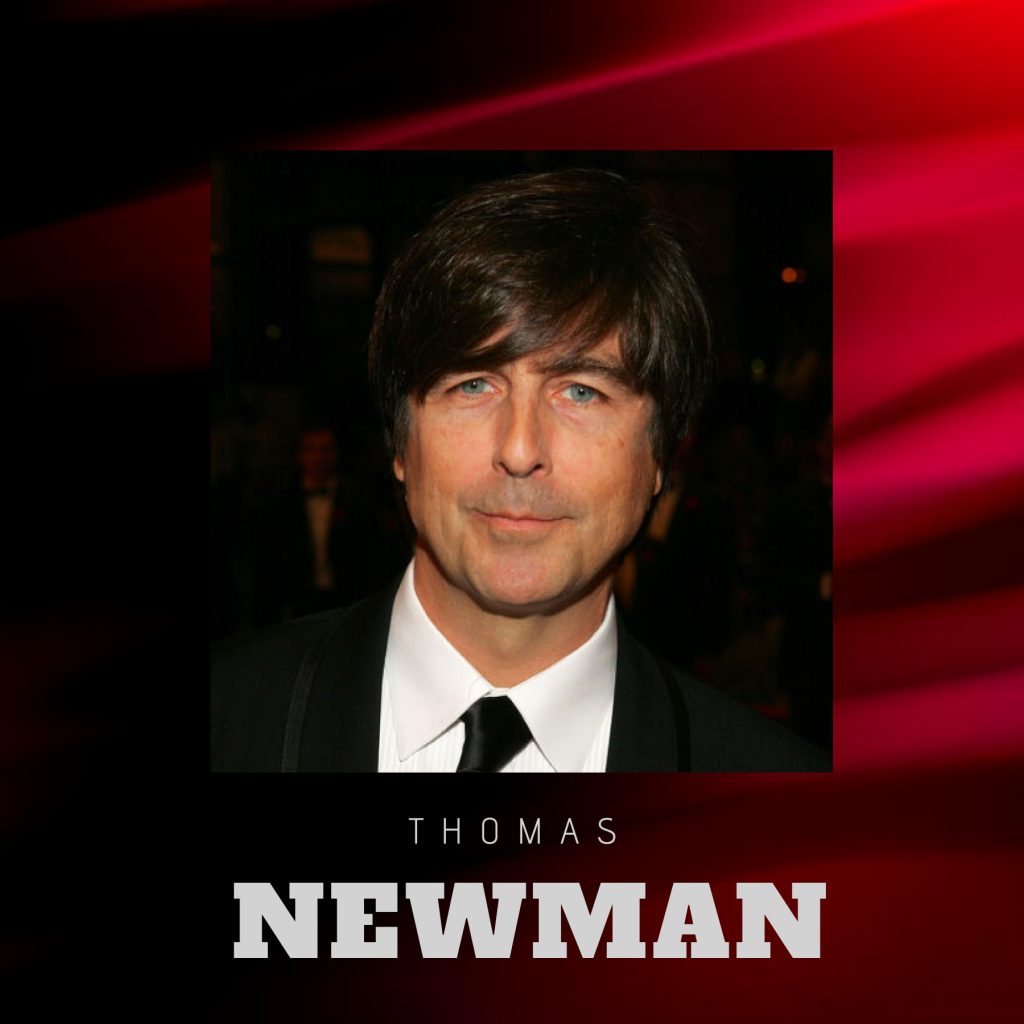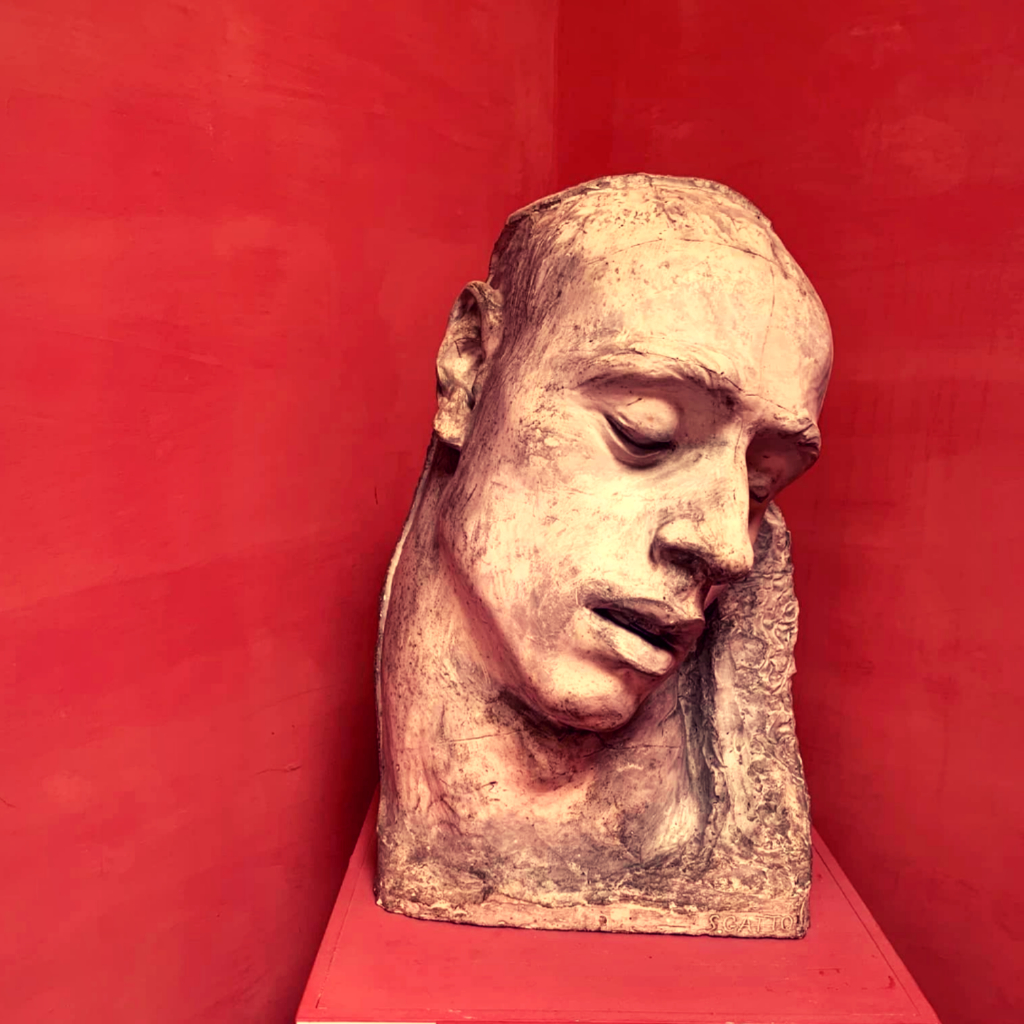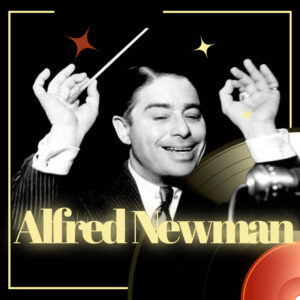
Thomas Newman (October 20, 1955) is recognized as one of the best-known composers of cinema today, he is part of a Hollywood film-scoring dynasty (the son and nephew of Hollywood composers Alfred and Lionel Newman, respectively, brother of composer/conductor/violinist David Newman and cousin of singer-songwriter-composer Randy Newman). He has scored over eighty films and television series and has won 15 Oscar nominations, an Emmy Award and six Grammy Awards. He studied at the University of Southern California and Yale University, and was mentored by legendary Broadway composer Stephen Sondheim.
In a career that has spanned over four decades, he has composed music for The Player, The Shawshank Redemption, Cinderella Man, American Beauty, The Green Mile, In the Bedroom, Angels in America, Finding Nemo, Lemony Snicket’s A Series of Unfortunate Events, WALL-E, the James Bond films Skyfall and Spectre, Finding Dory and 1917. Throughout his career, he has collaborated extensively with directors such as Sam Mendes, Frank Darabont, Steven Soderbergh, John Madden and John Lee Hancock.
His dad was the long-time musical director of 20th Century Fox (for 20 years), and one of the founding fathers of film scoring (his own credits include All About Eve and How the West Was Won). Alfred Newman gave a young jazz pianist Johnny Williams who had just graduated from music school some of his first concerts in Hollywood.
I’d go and sit on ratty green couches, I remember, down at Fox at the stage that my dad did a lot of work on, and watch John conduct these huge movies.
My dad, I think, really, really liked John as a player, and I think reached out, creatively, to John. And I don’t think John ever forgot that, and he’s been close to the Newmans all these years — always been so courteous to me, and such an interested musician. It’s been an honor, in many ways, to follow in his footsteps.
About John Williams
Thomas Newman’s music is magically expressive, focussing on an interesting acoustical spectrum of instruments and electronic techniques, melded with lush, sweeping strings. His mastery and use of harmony are beyond compare. Thomas Newman’s harmonies are moderated and delicate, but far from simple. There is complexity in their concept, they talk so much, with so little. Thomas Newman likes to use unusual instruments and audio design to create innovative new soundscapes. He even added chirping crickets into his score at one point. Another technique that Newman has adopted is the handling of acoustic recordings; the use of delays, extra reverb, audio inversion. A string section is often the centrepiece of Thomas Newman’s music. He often calls for his strings to play sordino (with mutes). It is often preferable to use medium or close microphone positions on selected string samples, with lots of additional space and applied reverberation.
Anne Thompson: How hard was it to marry the old Bond themes with the new movie and score, staying in tune with director Sam Mendes’ and audience expectations?
Thomas Newman: We sure worked at it. It’s tough. First, I’m not English. There was a high level of expectation, even if you wanted to defy it, plenty of people are around you defying that. The franchise is so huge. Everyone has such a strong opinion. Any one creative individual is not so big as Bond himself. The Bond Theme is such a great tune, I really wanted to honor it on behalf of the fans and the movie. Monty Norman wrote the theme, which was heavily arranged and stylized by John Barry. Talk to almost anyone about that tune, it’s their favorite from the movie.
Oscar Watch: ‘Skyfall’ Builds Academy Support, Composer Thomas Newman Overdue for Oscar
by Anne Thompson
January 4, 2013
Part of me wants to stay hidden; it’s no coincidence that I write movie music. It lets me stay in the shadows, in a way, but still lets me be expressive.
With film music, endings are often more difficult than beginnings, because a beginning is an underline, a way of exciting a moment, and then you have to find a way to dissipate that.
We’re all shocked by new ideas, and we’re less shocked when we hear them again. And less shocked when we hear them a third time.
Music is such an odd thing when you think about it – behind an image until you take it away, and then you realize a movie sounds blank without it.



